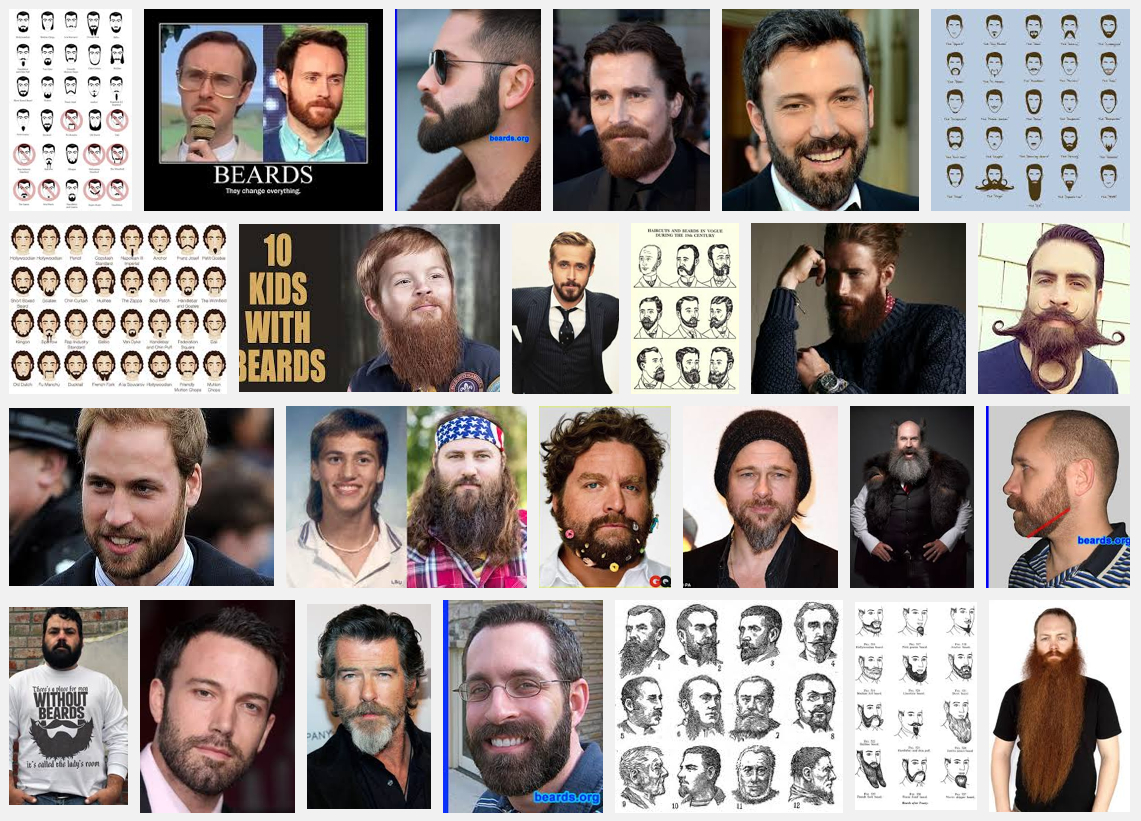[tube]6i8IER7nTfc[/tube]
Culture watchers pronounced “peak beard” around the time of the US Academy Awards in 2013. Since then celebrities (male) of all stripes and colors have been ditching the hairy chin for a more clean-shaven look. While, I have no interest in the amount or type of stubble on George Clooney’s face, the beard/no-beard debate does raise a more fascinating issue with profound evolutionary consequences. Research shows that certain physical characteristics, including facial hair, become more appealing when they are rare. The converse is also true: certain traits are less appealing when common. Furthermore, studies of social signalling and mating preference in various animals shows the same bias. So, men, if you’re trying to attract the attention of a potential mate it’s time to think more seriously about negative frequency-dependent sexual selection and ditch the conforming hirsute hipster look for something else. Here’s an idea: just be yourself instead of following the herd. Though, I do still like Manuel’s gallic mustache.
From the BBC:
The ebb and flow of men’s beard fashions may be guided by Darwinian selection, according to a new study.
The more beards there are, the less attractive they become – giving clean-shaven men a competitive advantage, say scientists in Sydney, Australia.
When “peak beard” frequency is reached, the pendulum swings back toward lesser-bristled chins – a trend we may be witnessing now, the scientists say.
Their study has been published in the Royal Society journal Biology Letters.
In the experiment, women and men were asked to rate different faces with “four standard levels of beardedness”.
Both beards and clean-shaven faces became more appealing when they were rare.
The pattern mirrors an evolutionary phenomenon – “negative frequency-dependent sexual selection”, or to put it more simply “an advantage to rare traits”.
The bright colours of male guppies vary by this force – which is driven by females’ changing preferences.
Scientists at the University of New South Wales decided to test this hypothesis for men’s facial hair – recruiting volunteers on their Facebook site, The Sex Lab.
“Big thick beards are back with an absolute vengeance and so we thought underlying this fashion, one of the dynamics that might be important is this idea of negative frequency dependence,” said Prof Rob Brooks, one of the study’s authors.
“The idea is that perhaps people start copying the George Clooneys and the Joaquin Phoenixs and start wearing those beards, but then when more and more people get onto the bandwagon the value of being on the bandwagon diminishes, so that might be why we’ve hit ‘peak beard’.”
“Peak beard” was the climax of the trend for beards in professions not naturally associated with a bristly chin – bankers, film stars, and even footballers began sporting facial hair.
Read the entire story here.
Video courtesy of Fawlty Towers / BBC Productions.

